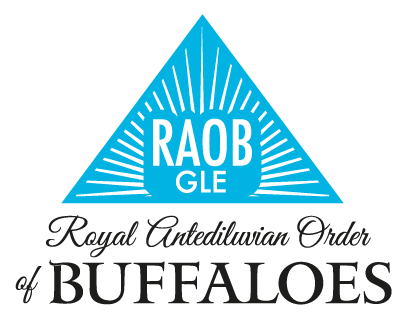
The keywords or hallmarks of our Order are:
JUSTICE, TRUTH and PHILANTHROPY.
These are noble sentiments and we strive to work towards a better understanding of the needs of our community. By encouraging our members to lead active and useful lives we believe we can influence others and show that, by following our philosophy,
society can grow and improve.
The principal aims of the Royal Antediluvian Order of Buffalo’s are;

The first thing you can do is find out where your nearest meeting place is.
You can do this by using our Lodge Finder, or you can phone the head office: 01423 502438 or send us an email at
After you have expressed an interest in joining the R.A.O.B, you will be contacted by your nearest meeting place to find out more.
If you are a member of the RAOB, but have not received a website account yet, you can register with the form below, which will allow you to access the members only area.